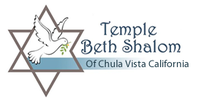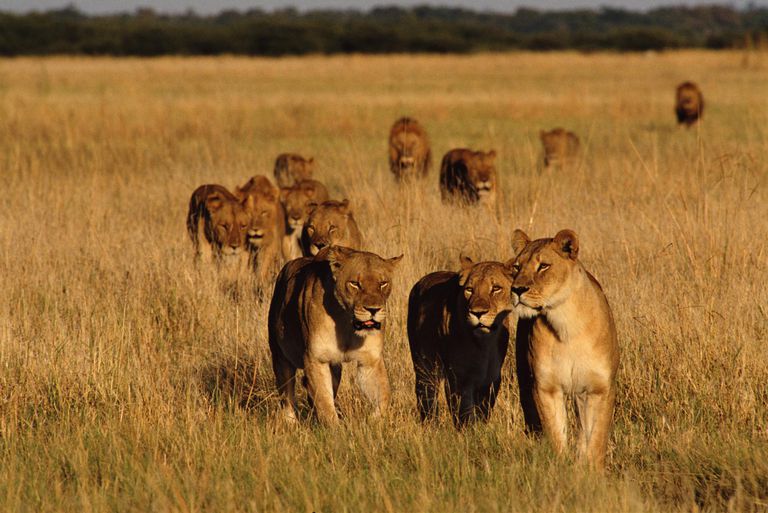The story is a familiar one. Once a man went out for a walk through the forest. To his sudden surprise, he sees a grizzly bear chasing him. After the bear traps him, he prepares himself for his last rites, he says the Shema Prayer, and to his surprise he sees the bear praying with his eyes closed! But to his surprise, the bear is not reciting the Shema—he is instead saying the blessing, “HaMotzi lechem min ha’aretz!”
By now, most of you heard about how a pride of lions killed suspected poachers at a game reserve in Africa. A field guide found human remains the next day. “Clearly, the poachers had walked into a pride of six lions and some, if not all had been killed,” according to a Facebook post by Fox.
“They were armed with, amongst other things, a high powered rifle with a silencer, an ax, wire cutters and had food supplies for a number of days – all the hallmarks of a gang intent on killing a rhino and removing their horns,” said Fox.
I am reminded of an old medieval aphorism, “Man proposes, but God disposes”
Pious Jews recite Psalm 145:14-17 every day
The eyes of all look hopefully to you;
You give them their food in due season.
You open wide your hand
and satisfy the desire of every living thing.
You, LORD, are just in all your ways,
faithful in all your works.
After the reading the news story from Africa, this passage took on new meaning for me. Yes, the ways of God are truly just. God not only provides His creatures with an appetizer, but also with main-course and dessert!
Jewish tradition has much to say about hunting.
- Abbahu said: A man should always strive to identify with the persecuted than of the persecutors as there is none among the birds more persecuted than doves and pigeons, and yet Scripture made them [alone] eligible for the altar (Lev. 1:14).[1]
In the Tanakh, God beckoned Noah to preserve the animal species. The Book of Leviticus tells us “You shall not slaughter an ox or a sheep on one and the same day with its young” (Lev. 22:28). Both Philo of Alexandria and Ramban believe the purpose of this prohibition aims to prevent the destruction of a species. In one famous midrashic text we read:
- When the Holy Blessed One created the first man, He took him and led him around all the trees of the Garden of Eden, and said to him, “Look at my handiwork, see how beautiful and excellent they are! Everything I have created, I created for you! Be careful that you do not corrupt and destroy My world, for if you corrupt it there is no one to repair it after you.[2]
Rabbinic law reflects this disdain toward hunting.
- “How can a man from Israel actively kill an animal for no need other than to fulfill his desire to spend his time hunting? We do not find that people in the Torah are hunters except with Nimrod and Esau. This is not the way of descendants of Abraham, Isaac, and Jacob…”[3]
Anyone who goes to the San Diego Zoo might be surprised at a large number of endangered species that the zoo and other similar habitats are trying to preserve. Unfortunately, there are some people who will do anything to kill these species, for rhino horns are often used in Chinese medicine and their price is considered more valuable than gold.
In my conversation with some Orthodox rabbis, I was surprised to see a number of them argue that there is a place for “big game” centers provided the monies go to promote animal growth in African communities. While this may be true in theory, the corruption and lust for profit may prove to be counterproductive; aside from this, poachers will always try to find a way to circumvent existing laws.
Furthermore, popularizing these big-game trophies only serves to motivate other would be hunters who live for the thrill of the moment.
As Jews who love animals, we cannot stand idly by as malignant people attempt to depopulate the world of these magnificent creatures. Instead of justifying the barbarism of these hunters with contrived Halakhic arguments, we need to remember that God expects human beings and animals to live in a world peaceably with these rare creatures.
One of the great 20th century Jewish mystics, R. Abraham Isaac Kook expressed an ethical thought that people need to hear and consider today:
- It goes against the clear emotions of the heart that a talmid hakham (Torah scholar), a spiritual man, should be permanently engaged in the taking of animals’ lives. Though shechitah (ritual slaughter)—and in general the consumption of animals—remains a necessity in this world, nevertheless, it would be fitting that this work performed by men who have not yet evolved to the level of refinement of feeling. However, those endowed with ethical sensitivity ought to serve as supervisors (pekidim) in order that the killing of the animals must not become a barbaric act. Let there be a light that will enter into the heart of meat-eaters–a light that will someday illuminate the world. For those who truly understand the significance of kosher slaughtering, this light is truly contained in the laws of shehitah and tereifot (unfit animals), as is well known to us.[5]
[2] Ecclesiastes Rabbah 7:20.
[3] Rabbi Yechezkel Landau, Shailos U’Teshuvot Noda B’Yehudah, Mehadurah Tinyana, Yoreh De’ah 10.
[4] Rabbi Zvi Hirsch Kaidanover, Kav HaYashar 83.
[5] Igrot Rayah, vol. I, p. 230.
Posted in Bible, biblical history, biblical theology, Contrarian wisdom, Current Events, good and evil, Halacha, science and religion


 RSS Feed
RSS Feed
